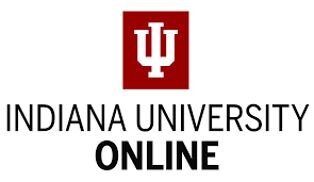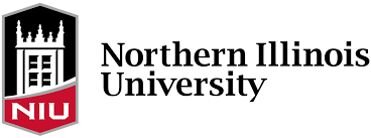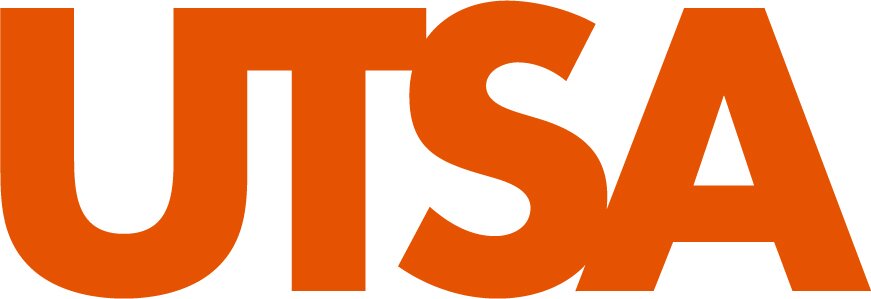Declining enrollment, rising marketing costs, and mounting doubts about student outcomes are just a few of the unprecedented challenges facing higher education. Throw in political polarization, AI integration, FAFSA meltdown, and the end of Affirmative Action in college admissions, and you have a perfect storm of chaos and disruption.
At last week’s 2024 Eduventures Summit, we honored four institutions for their commitment to adaptability, accessibility, and student success in a challenging environment. Congratulations to Harvard Division of Continuing Education, Indiana University Online, Northern Illinois University, and University of Texas at San Antonio!
We also recognize the achievements of Adelphi University, Bellevue University, Southern New Hampshire University, and Suffolk University!
Here are their stories.
Harvard Division of Continuing Education
Portable Blended Classrooms to Facilitate High-Quality Synchronous Courses
Background
Prior to the pandemic, the Harvard Division of Continuing Education renovated a dozen classrooms to accommodate hybrid learning. This solution, however, proved to be expensive and nearly impossible to scale since the school has upwards of 200 classrooms and caters to students from all corners of the world.
Initiative
To solve for this, it designed and built what it calls the “HELIX Portable Blended Classroom,” a more cost-effective solution that allows it to transform any classroom on campus into a hybrid environment. This entails much more than a simple Zoom call. These portable blended classrooms enable the instructor and both sets of students — both those in the physical classroom and those online — to see, hear, and converse with each other easily.
Outcome
The HELIX Portable Blended Classroom has now been piloted multiple times on campus in various high-stakes situations. Qualitative feedback has centered on its success at bringing together students both on-campus, and in disparate locations into one space.
One undergraduate student said, “It just felt like being in a normal classroom. I could see the remote students very clearly and could interact with the in-person students like I would normally.”
Indiana University Online
Comprehensive, Strategic Redesign of Online Education
Background
Coming out of the pandemic in 2022, online education at Indiana University Online was at an inflection point. Because the school had eliminated a distance education fee at its two largest campuses, its funding was way down. This meant reduced marketing and instructional design budgets and declining enrollment.
The school’s 200+ online programs and student services were inconsistently delivered across seven campuses. It also lacked integrated course design, relied on the traditional 16-week semester, and was not responsive to the expectations of online students.
Additionally, like many schools, the forced move to remote teaching during the pandemic had created a dislike for online teaching among vocal faculty. There was an oppressive sense of fatigue. Action was needed to regain a prominent place in online education.
Initiative
In 2021, IU Online initiated a comprehensive review and redesign of its collaborative approach to online education. As part of its 2030 strategic plan, it conducted two external reviews and formed an internal task force. The result was the Programs of Scale Initiative, designed to reach more students of all backgrounds with a quality education.
The objectives of the Programs of Scale initiative included seven pillars:
- Market-informed selection of targeted programs
- Robust digital marketing
- Expanded points of entry/admit terms for students
- Proactive, responsive, and concierge-like student services & continuity of student care
- Simplified policies and procedures
- Instructional design support from development to execution
- Multi-point and rapid assessment of program performance
Outcome
Here is a sample of the outcomes of the Programs of Scale Initiative:
- A total of 12 new programs have been launched (to date).
- Student requests for information (RFI) related to Programs of Scale program subject areas jumped to over 13,000 in 2023, over five times the number of related RFIs received in 2022.
- Stepped up marketing efforts led to year-over-year increases of up to 38% in applications. As a result, fall 2023 saw a record 8,643 total Online enrollments, a 3.5% increase over fall 2022. Undergraduate online students grew 12% over fall 2022, with an almost 22% increase in new online students.
- In the final two-month push leading to the start of the fall 2023 term, the new centralized student success team recorded 21,500 student interactions, sent over 27,000 SMS texts, processed 1,555 applications, and obtained an online degree-seeking retention rate of 83%.
- Starting in summer 2023, 61 faculty working with 15 instructional designers built a total of 74 new eight-week courses with a consistent look and feel in less than a year.
- Student surveys indicated high levels of satisfaction with their eight-week course experiences: 73% of fall 2023 students said they were satisfied or highly satisfied, and 86% of fall 2023, second eight-week course-takers, indicated the same.
Northern Illinois University
Student Success through Intergovernmental Agreement
Background
The innovation of Northern Illinois University was born during the pandemic, which impacted college enrollment and created new challenges and barriers for students—especially those who are first generation or from underserved communities. At the same time, Illinois has remained relatively flat in students graduating from high school with a significant, prolonged, decline forecast for coming years.
The climate for student recruitment in Illinois has become increasingly competitive over the past decade. Hundreds of universities from across the country go to Illinois to recruit, resulting in almost half of college-going students attending institutions outside the state.
Further, there has been a significant increase in admitted students who don’t go to college at all. This past fall, about 3,500 first-year students were admitted to this school and ultimately didn’t enroll anywhere. Two-thirds of these students were first-generation and almost 70% were students of color.
Initiative
In response, this institution established the Rockford Promise Program to create opportunities for hundreds of students from the City of Rockford, Illinois, to earn degrees without paying tuition or fees. The program represents a university partnership with the Rockford Promise organization, City of Rockford, and Rockford Public Schools, which has 45 schools and 27,766 students. Students of color represent 70% of the district’s enrollment, and 33% of the students are economically disadvantaged.
Outcome
The program has experienced significant expansion and student achievement:
- Since its inception, freshman enrollment from Rockford Public Schools has surged, increasing more than sixfold compared to the three years prior.
- Rockford Promise scholars exhibit better reenrollment rates and academic performance than the university average, with an 85% first-year retention rate and higher GPAs.
- The program contributes to diversity, with a substantial proportion of first-generation students, Pell Grant recipients, and individuals of color.
Participants have praised the initiative for its financial assistance and comprehensive student support services, including mentorship programs and academic advising. City leaders view the program as a strategic investment in the community's future, recognizing its role in fostering educational attainment and economic prosperity, and driving regional development.
University of Texas at San Antonio
Data-Informed “Learning Innovation” to Bridge Faculty and Student Success
Background
The University of Texas at San Antonio has experienced dramatic increases in student success over the last decade through a number of initiatives across campus. But as student success metrics often go, it was unclear exactly which initiatives were having the impact.
Initiative
This university launched what it called the Learning Innovation initiative. Its objective was to develop a framework and pilot projects that would focus on expanding the areas it consistently measures for impact on student success metrics. Examples include: multiple types of faculty professional development programs, course transformation projects, and revised curricular pathways.
In the end, this initiative validated that measuring impact is possible, and that the projects it had implemented over the years are scalable so long as there is collaboration and leadership from key areas.
Outcomes
What did it learn? Here are some examples:
- Faculty completing the professional development program saw a 3.6% reduction of Ds, Fs & Withdrawals (DFW), and improved A or B grades.
- In its Curricular Analytics and Course Transformation projects, introducing formalized program reviews led to a 26-34% decrease in program petitions.
- In some courses, enhanced pedagogy and learner-centered design reduced DFW rates by 6.8%.
- Student Experience Project (SEP): 52 faculty, 3,500 students, and 88% using the Ascend platform observed positive changes, especially among Hispanic male and first-generation students, with an overall 3% reduction in DFW rates.
- Feelings of connection and belonging had increased among the 670 undergraduates impacted by 30 faculty mini grants with 88% feeling more connected to peers and faculty.
Recognition of Achievement
We also recognize the achievements of four universities for their creative and competent approaches to everyday challenges:
Adelphi University
Their Initiative: The “Two Museum” trip designed to build a deeper understanding and empathy for Jewish history and Black history.
Bellevue University
Their Initiative: Transformation of its People and Business Leadership certificate program, thereby strengthening its commitment to applied learning while surpassing completion, equity, and revenue goals.
Southern New Hampshire University
Their Initiative: Deployment of a conversational AI chatbot to provide learner support and intervention at scale resulting in improvements in student engagement, persistence, and academic success.
Suffolk University, Sawyer Business School
Their Initiative: Development of the innovative IMMERSE Blueprint course design to address the gap between the traditional business school curricula and the practical demands for student involvement, employability, and positive community impact.
Congratulations to all 2024 award winners!





